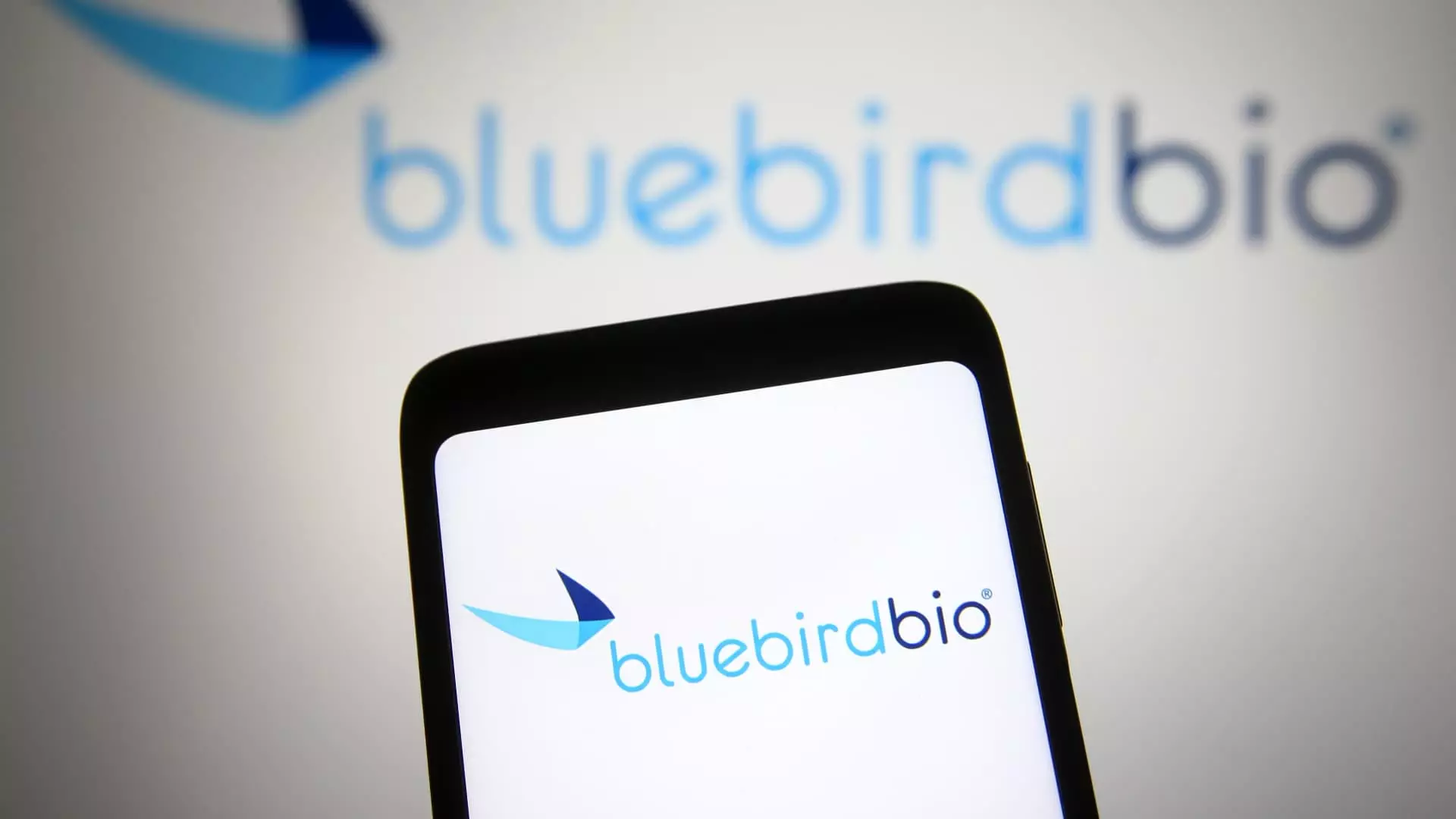Bluebird Bio, once celebrated as a pioneer in the biotech landscape, is set to merge with private equity firms Carlyle and SK Capital for an estimated $30 million, marking a dramatic shift in its trajectory. This divestiture highlights not only a financial collapse but also an industry plagued by challenges in translating innovation into profitability. Shareholders are expected to receive $3 per share, with an additional $6.84 contingent on the future success of Bluebird’s gene therapies. Once valued at approximately $9 billion, the company now finds itself grappling with a market cap of less than $41 million, underscoring a significant decline in investor confidence.
For over three decades, Bluebird Bio positioned itself at the forefront of gene therapies aimed at curing genetic disorders. The aspirations were high; investors eagerly fueled the narrative of life-altering treatments that could potentially cure diseases like sickle cell anemia and beta thalassemia. However, simmering beneath this façade of success were a series of scientific and regulatory setbacks. The most notable incident came in 2018 when a disturbing case of a patient developing cancer after treatment raised alarm bells about the safety of its therapies. This revelation set off a cascade of skepticism that has since clouded the company’s reputation and future prospects.
Bluebird’s struggles intensified when it faced backlash from European payers over the exorbitant $1.8 million pricing for Zynteglo, its therapy for beta thalassemia. Ultimately, Bluebird was compelled to withdraw this treatment from the European market, just two years post-approval, which further deteriorated its standing. The decision to retreat from Europe in favor of focusing on the U.S. market highlighted a strategy fraught with risk. While new approvals were secured for several therapies, including Zynteglo, Lyfgenia for sickle cell disease, and Skysona for cerebral adrenoleukodystrophy, their inability to generate revenue and provide financial relief spelled disaster for the company’s sustainability.
Bluebird Bio’s financial struggles culminated in the unfortunate reality that hundreds of millions of dollars were being drained each year without a clear path to profitability. The spinoff of its cancer treatments into a sister company, 2Seventy Bio, further exacerbated its plight by removing a vital revenue stream. By late 2022, the grim forecast suggested that the company’s remaining cash would only sustain operations through the first quarter of 2023. Thus, the sale to Carlyle and SK Capital emerges not merely as a business transaction, but as a lifeline in a desperate moment.
The downfall of Bluebird Bio brings to light pressing questions regarding the viability of one-time treatments for rare diseases. Beyond the numbers and financial metrics lies the human element—a realm of patients yearning for hope. The story of a young girl who was the first in the U.S. to receive Zynteglo exemplifies the tangible difference these therapies can make, despite the company’s corporate struggles. Nonetheless, the inability of the company to consistently deliver results raises concerns about the long-term sustainability of similar models across the biotechnology sector.
As Bluebird Bio navigates through its challenges, it mirrors a broader trend affecting the entire biotechnology industry. Competitors like Vertex and Pfizer are also witnessing hurdles in translating innovative therapies into profitable ventures. Vertex’s gene therapy for sickle cell disease has seen sluggish uptake, while Pfizer has already decided to halt its gene therapy for hemophilia one year after its approval due to poor market demand. This pattern raises critical considerations for investors and stakeholders about the future of gene therapies and the complex interplay between innovation, regulation, and market dynamics.
While Bluebird Bio’s gene therapies hold the potential to change lives, the company’s fate serves as a poignant reminder of the challenges inherent in the biotechnology field. Despite transformative advancements, the crux of the matter lies in the ability of these therapies to evolve into sustainable business models. As Bluebird merges with Carlyle and SK Capital, it stands at a crossroads, illustrating the precarious nature of innovation in an industry that thrives on hope but is often hampered by financial realities.

